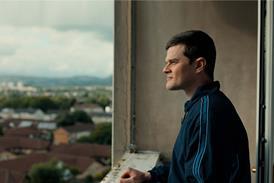Hoping to break the deadlock between exhibitors and studios over who should pay for the transition to digital cinema projection, several companies including the world's largest aircraft-maker are using this week's ShoWest convention in Las Vegas to announce independent financing schemes.
The Boeing Company, and a joint venture of Technicolor and Qualcomm were both preparing to announce plans to fund digital transmission systems that would then be leased to theatre.
Boeing unveiled its satellite content management and delivery system at ShoWest on Tuesday evening with a screening of Robert Rodriguez children's action adventure Spy Kids that was made for Miramax Films' Dimension label. The film, which was finished on Sunday and then downloaded from a satellite the following day, was transmitted without any discernible hitches. Rodriguez said the crystal-clarity and vibrant colour hues were exactly as he envisioned them during shooting and in fact far exceeded the quality of celluloid. Everyone in the audience agreed after seeing the stunning, effects-laden, images projected digitally.
Boeing, which is has its own string of satellites, first introduced its system last November, when it digitally screened the romantic drama Bounce, another Miramax production, in a New York City theatre. The Seattle giant already has its own equipment leasing and financing division, Boeing Capital Corp, which is typically used by airlines to purchase planes. As a military supplier, Boeing also has an expertise in protecting satellite communications through encryption technologies.
"We'll be prepared to hold serious discussions of initial order inquiries at ShoWest," said Tig H Krekel, president of Boeing's Satellite Systems. "We will also graphically demonstrate the benefits of Boeing digital cinema: high-quality, error free, cost-effective, and highly secure film distribution."
However, there are real doubts about the speed with which exhibitors will adopt even the most technologically advanced digital systems in light of the major chain's current financial crisis in the US.
John Fithian, president of the National Association of Theatre Owners put it this way: "Why should you pay as much as $150,000 for a digital projection system that will become obsolete in two years when you can still buy a 35mm projector for $35,000 that will last twenty years." He said that the "concept of third party financing for was not necessarily a bad one" but suggested it that will take several years before digital cinemas went beyond the current testing phase. In order to justify the significant costs involved, digital cinema would have to surpass traditional 35mm projection in audience eyes.
"Digital cinema will roll out, but it won't happen any time soon" Fithian told reporters before delivering his keynote address on Tuesday. 'The technology is developing but it is not there yet. It has to be significantly better than film to make sense and even before that significant issues still have to be sorted out."
Other contenders at ShoWest include Qualcomm and Technicolor. The companies - which have a joint venture to develop a feature digital delivery system - are also expected to announce a franchise-based operation, under which exhibitors pay a lease in correlation to attendance at digital events.
Digital roll-out is a contentious issue between studios and exhibitors, with neither side willing to shoulder financial responsibility for the conversions, which are estimated at around $150,000 per screen projector. Both sides argue that the other has more to gain from digital take-up - the exhibitors cite the fact that the studios will be able to erase hefty global p&a costs, and the studios counter that digital delivery will open up new ancillary revenues for exhibitors. In a statement, Boeing cites the ability to screen Broadway plays, rock concerts, corporate training and distance learning as a benefit of digital projection.
But whether the lease models will be universally accepted is unclear. Conversely, of course, outside involvement in conversion can also mean outside involvement in the revenue streams between exhibitors and studios.
And although it is understood that Boeing's satellite system is designed to work with any digital projection technology that may emerge, the fact that digital conversion models are being sold on a circuit-by-circuit basis further sours the ideal that exhibitors and studios should be on an equal footing for digital rollout.
Nevertheless, the lease-based conversion models could prove attractive to the 10 or so exhibitors in the shadow of Chapter 11 bankruptcy protection, keen to maximise the potential of their cinemas, but lacking the transitional funds to realise the conversion.
Leon Forde in London contributed to this report















![[Clockwise from top left]: Paul Thomas Anderson, Chloe Zhao, Ryan Coogler, Park Chan-wook](https://d1nslcd7m2225b.cloudfront.net/Pictures/274x183/9/0/0/1467900_writerdirectors_192733.jpg)


No comments yet